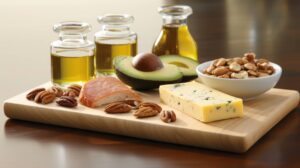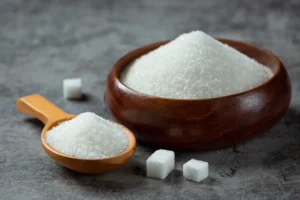Sugar often gets a bad reputation in the health and nutrition world. With numerous studies linking excessive sugar consumption to obesity, diabetes, and heart disease, many individuals are left wondering if all types of sugar are harmful. To answer this question, it’s crucial to differentiate between natural sugars and added sugars, as they have different effects on health.
Understanding Sugar Types
Sugar is a type of carbohydrate that comes in various forms, including glucose, fructose, and sucrose. Natural sugars are found in whole foods like fruits, vegetables, and dairy products, while added sugars are those incorporated into processed foods and beverages. Understanding the distinction between these types is key to evaluating their impact on health.
Natural Sugars vs. Added Sugars
Natural sugars, such as those found in fruits and vegetables, come with beneficial nutrients, including vitamins, minerals, and fiber. For instance, fruits not only provide natural sweetness but also contribute antioxidants and dietary fiber, which promote overall health. In contrast, added sugars are often found in sugary drinks, candies, and baked goods, and they contribute little more than empty calories, which can lead to weight gain and other health issues when consumed in excess.
Health Risks of Excessive Sugar Intake
While natural sugars can be part of a healthy diet, excessive intake of added sugars has been linked to several health concerns. High consumption of added sugars can lead to obesity, insulin resistance, and an increased risk of chronic diseases, including type 2 diabetes and cardiovascular disease. The World Health Organization (WHO) recommends that added sugars should make up less than 10% of total daily caloric intake, emphasizing the importance of moderation.
The Role of Moderation
Not all sugars are created equal, and moderation is essential. It’s important to enjoy foods containing natural sugars, such as fruits, in their whole form. However, it’s wise to limit foods and beverages high in added sugars. Checking food labels can help individuals make informed choices about their sugar intake. Foods high in added sugars should be consumed occasionally, rather than as staples in the diet.
Healthy Alternatives
For those looking to reduce their sugar intake, there are plenty of alternatives. Whole fruits can satisfy sweet cravings while providing nutritional benefits. Additionally, exploring natural sweeteners like honey or maple syrup in moderation can be a healthier choice than processed sugars. For recipes, experimenting with spices like cinnamon or vanilla can enhance flavor without relying on sugar.
Final Thoughts
In conclusion, not all sugars are bad for you; the key lies in understanding the differences between natural and added sugars. While natural sugars from whole foods can contribute to a healthy diet, excessive added sugars can lead to significant health risks. By focusing on moderation and making informed choices about sugar intake, individuals can enjoy the sweetness of life while maintaining their health and well-being.




